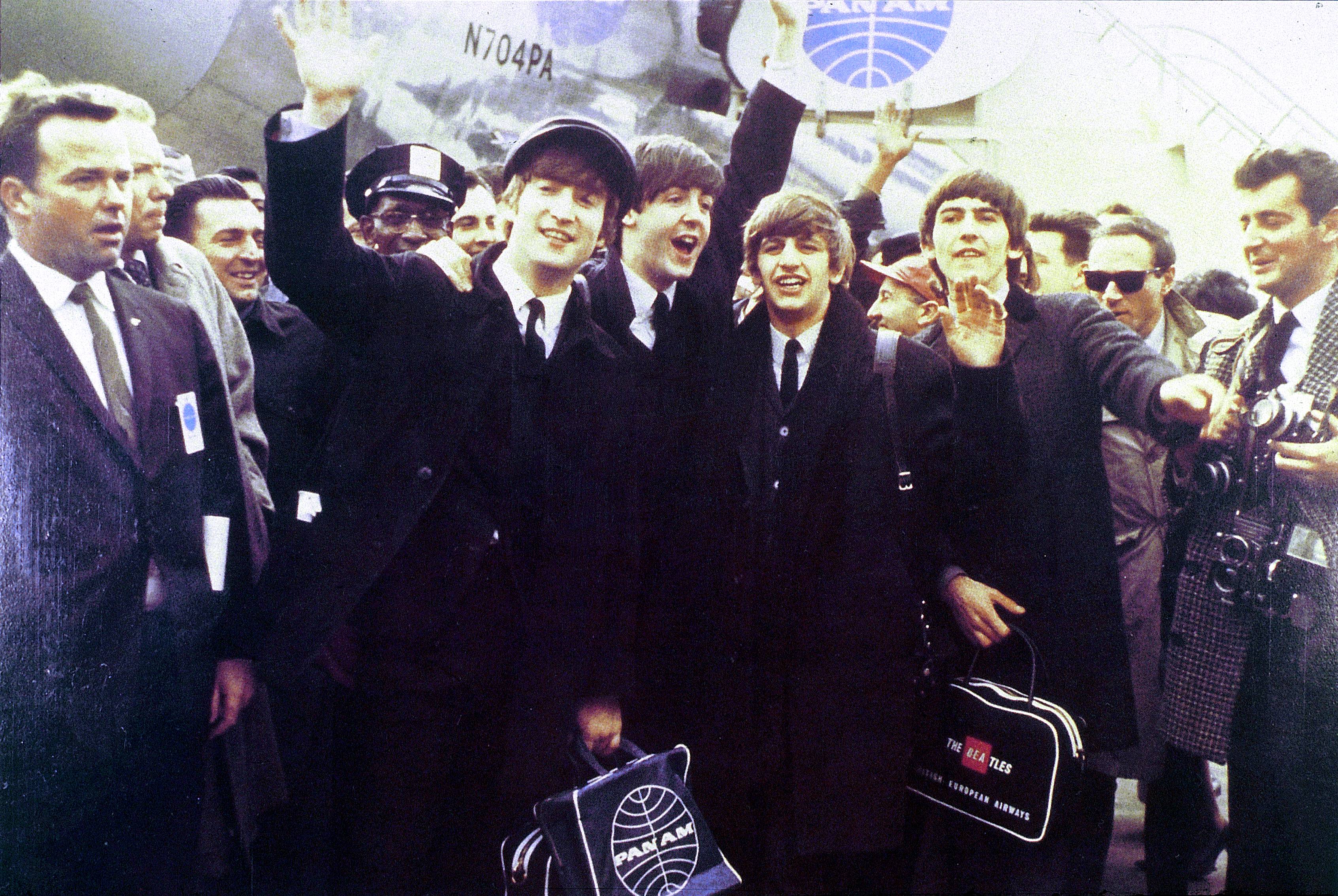The escalation of tensions following President Joe Biden's authorization for Kyiv to use U.S.-made long-range weapons in strikes in Russia and Moscow's use of a hypersonic ballistic missile on Ukrainian territory have ramped up concerns of potential recourse to nuclear weapons in the conflict.
Russian President Vladimir Putin signed an updated nuclear doctrine into law last week, lowering the threshold for using the world's largest atomic weapons arsenal. It allows for a potential nuclear response even to a conventional attack on Russia by any country that is supported by a nuclear power.
Putin also gave a TV address on November 21 discussing Russia's use of the new hypersonic ballistic missile, Oreshnik, in an attack on Dnipro. After discussing Ukraine's attack on Russia using U.S.-made ATACMS (Army Tactical Missile System), Putin said: "We believe that we have the right to use our weapons against military facilities of the countries that allow to use their weapons against our facilities. And in case of escalation of aggressive actions, we will respond resolutely in a mirror way."
Russian State Duma Speaker Vyacheslav Volodin also threatened a "more powerful" response to further strikes on Russian territory.
Biden had long opposed Ukrainian use of ATACMS for attacks on Russian territory for fear of potential escalation before allowing it as President-elect Donald Trump, who has made clear he wanted a swift end to the war, prepares to enter the White House. The Biden administration also announced it would send antipersonnel land mines to Ukraine. These two moves have also prompted concerns in the U.S. over the risk of escalating the conflict, with Senator Ted Cruz recently saying the president was "pouring gasoline around the White House."
Newsweek reached out to the Russian and Ukrainian defense ministries outside of regular business hours as well as the White House.

On Tuesday, Dmitry Medvedev, the deputy chairman of the Security Council of Russia, also issued a warning to the U.S. regarding the outbreak of nuclear war in a post on Telegram.
Medvedev wrote: "American politicians and journalists are seriously discussing the consequences of transferring nuclear weapons to Kyiv. It seems that my sad joke about crazy, senile Biden, who decided to leave this life gracefully, taking a significant part of humanity with him, is turning into a frightening reality."
"The very threat of transferring nuclear weapons to the Kyiv regime can be considered preparation for nuclear conflict with Russia," he added. "We are not planning to equip Ukraine with nuclear weapons," the White House told Newsweek on Tuesday.
Newsweek spoke to three experts about whether or not they believe Putin will use nuclear weapons in Ukraine.
'The Same Playbook for Over Two Years'
John Erath, senior policy director at the nonprofit Center for Arms Control and Non-Proliferation, said that he believes Putin has already been using nuclear weapons as "instruments of diplomacy through threats and blackmail to limit the military assistance that is going from NATO countries to Ukraine. This has been a fairly successful policy as it has led a number of governments, including most especially the U.S, to self-limit what they have provided to Ukraine over the last two years or more."
Regarding a possible launch of nuclear weapons by Russia on Ukraine, he said: "I don't think that the possibility that they would use a nuclear weapon in that way is much greater than it has been and it's always been small for several reasons. First and most obvious is that it's difficult to see what they would hope to accomplish through the use of a nuclear weapon. They're able to hit targets throughout Ukraine and cause widespread destruction and lots of civilian casualties."
"It doesn't make sense to use a weapon that leaves a lot of residual radiation on territory you want to occupy and in proximity to your own troops. So militarily, there's little reason to use a nuclear weapon. If there's a danger that one might be used, it would be as more of a demonstration of Russian willingness to continue to escalate. The Russians want everybody to know that they are prepared to use levels of violence that everyone else would consider unacceptable in order to impose their will on Ukraine."
Regarding Russia's next steps, if they do not contain launching nuclear weapons, Erath said, "It's very clear. They've been running the same playbook for over two years. They're going to continue to escalate the threats, they're going to continue to see what creates an impression and if it's the use of a so-called hypersonic weapon, then they will continue to do that."
He continued, "There's nothing really new about the weapon that the Russians may have used. They have highly capable long range ballistic missiles and have had them for years. This one [the Oreshnisk missile used on Dnipro] might in some ways be a little better or it might not. We don't know. It's experimental. But they it was intended to send a message that they are prepared to use new weapons, and that the war is not winnable for Ukraine. That's the impression they want to create."
Erath added that if Russia were to fire nuclear weapons at Ukraine, he believes it would have done so before.
'Intimidate Ukraine and Its Allies'
John Lough, an associate fellow in the Russia & Eurasia program at the international affairs think tank Chatham House, told Newsweek: "I do not believe Putin has any serious intention to use nuclear weapons in Ukraine.
"He is once again trying to intimidate Ukraine and its allies because he knows that Western leaders are very sensitive to nuclear threats. As he knows from his military, the main assets that were in the range of the Western missiles now available for Ukraine to use against targets in Russia were moved out of range months ago. The Russian military had expected this decision."
Newsweek also spoke to Joseph Rodgers, the deputy director and fellow with the Project on Nuclear Issues in the International Security Program at the Center for Strategic and International Studies (CSIS).
He said that Putin's signing of an updated nuclear doctrine "clearly lowers the threshold for nuclear use by Russia and sets the groundwork for a further buildup of Russia's strategic nuclear arsenal if the New START treaty [nuclear non-proliferation agreement that saw the reduction of U.S. and Russian nuclear stockpiles] expires in 2026."
'Big Shift in Policy'
"Russia will now consider any conventional attack on Russia by any nation that is supported by a nuclear-armed state as a joint attack, " added Rodgers. "Additionally, the new doctrine extends nuclear deterrence to the Union State of Russia and Belarus, meaning that if the survival of Belarus is at stake, then Russia may consider using nuclear weapons to defend Belarus. The doctrine also states that Russia could use nuclear weapons in response to WMD [weapon of mass destruction] use against Russian forces."
Rodgers continued: "Nevertheless, the doctrine still states that Russia regards the use of nuclear weapons as an extreme measure only to be used against critical threats to the sovereignty and territorial integrity of the union state. While this doctrine shift lowers the threshold for nuclear use, the actual likelihood of nuclear weapons employment is low."
Rodgers highlighted that nuclear rhetoric is not new, and has been used since the war began, but he did emphasize that this is a "big shift in policy."
"Russia's new nuclear doctrine is unlikely to prompt a meaningful change in the way that the United States approaches the conflict," he said. "The global community should condemn Russian nuclear threats. The world needs to see that Russia is conducting nuclear saber-rattling, and it is getting them nothing. This is not the way that responsible nuclear-armed states should behave in the international system."



















 English (US) ·
English (US) ·